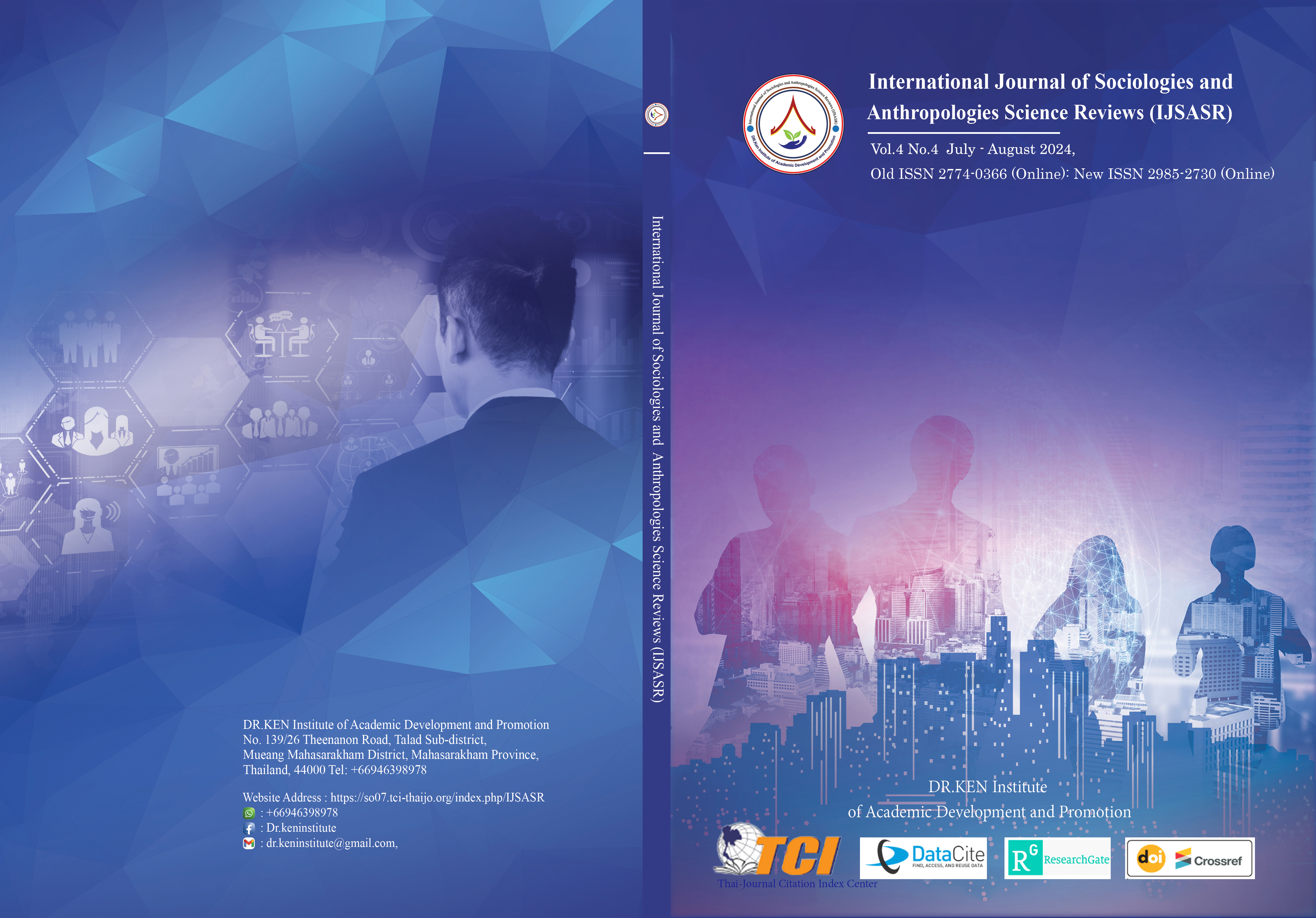The Impact of Educational Beliefs on Work Engagement Among Private College Teachers in China: An Empirical Study
Main Article Content
Abstract
Background and Aim: Despite the widespread acknowledgment of work engagement challenges among faculty, there remains a significant gap in the literature regarding the specific influence of educational beliefs on teacher engagement, particularly within private colleges in China. Thus, this study aims to explore the impact of educational management beliefs and work engagement among teachers in private colleges and universities.
Materials and Methods: Employing a questionnaire survey and interviews, this study investigates how teachers' beliefs and sense of teaching efficacy mediate their work engagement. Research tools include the "Survey on the Impact of Educational Beliefs on Work Engagement among Private College Teachers" and the "Interview Outline for Educational Beliefs of Private College Teachers," with SPSS 26.0 software and the Process plugin used for data analysis.
Results: Findings reveal a significant, positive correlation between teachers' educational beliefs, their sense of teaching efficacy, and their work engagement.
Conclusion: The study underscores the importance of nurturing positive educational beliefs and teaching efficacy to enhance work engagement among private college teachers, contributing to the advancement of higher education in China.
Article Details

This work is licensed under a Creative Commons Attribution-NonCommercial-NoDerivatives 4.0 International License.
Copyright on any article in the International Journal of Sociologies and Anthropologies Science Reviews is retained by the author(s) under the under the Creative Commons Attribution-NonCommercial-NoDerivatives 4.0 International License. Permission to use text, content, images, etc. of publication. Any user to read, download, copy, distribute, print, search, or link to the full texts of articles, crawl them for indexing, pass them as data to software, or use them for any other lawful purpose. But do not use it for commercial use or with the intent to benefit any business.

References
Dong, H.X. (2016). Representation and reconstruction of primary and secondary school teachers' educational beliefs from a sociocultural perspective. Contemporary Educational Science, 16, 53-56.
Fang, X. (2008). The basic construction of contemporary normal university students' educational beliefs. China Adult Education, 8, 18-26.
Guo, H. (2017). Research on the educational beliefs of non-normal major junior high school teachers: A case study of Z city in S province. Master's thesis, Sichuan Normal University.
Guo, X. N. (2008). The current situation, significance, and trend of research on teachers' teaching beliefs. Foreign Education Studies, 10, 92-96.
Hong, X.M., & Pang, L.J. (2006). On the nature, structure, and characteristics of teacher self-efficacy. Educational Science, 8, 44-46.
Kelly, T., & Singh, P. (2020). Educators' engagement and its effect on teaching effectiveness: A mixed-methods study. Educational Researcher, 49(6), 397-412.
Saleh, S., & Hosek, J. (1976). Job involvement: Concepts and measurements. Academy of Management Journal, 19, 213-224.
Smith, J., & Jones, M. (2021). The impact of digital transformation on employee work engagement in remote work environments. Journal of Organizational Behavior, 42(3), 234-250.
Wang, H.Y., & Xie, F. (2009). A case study of college English teachers' teaching beliefs and methods. Journal of Harbin College, 1, 133-137.
Zhang, L., Wang, H., & Liu, X. (2022). Psychological safety, organizational support, and work engagement: An empirical study in the tech industry. Journal of Applied Psychology, 107(1), 142-158.
Zhao, C.M. (2004). On teacher beliefs. Contemporary Educational Science, 9, 11-14.






